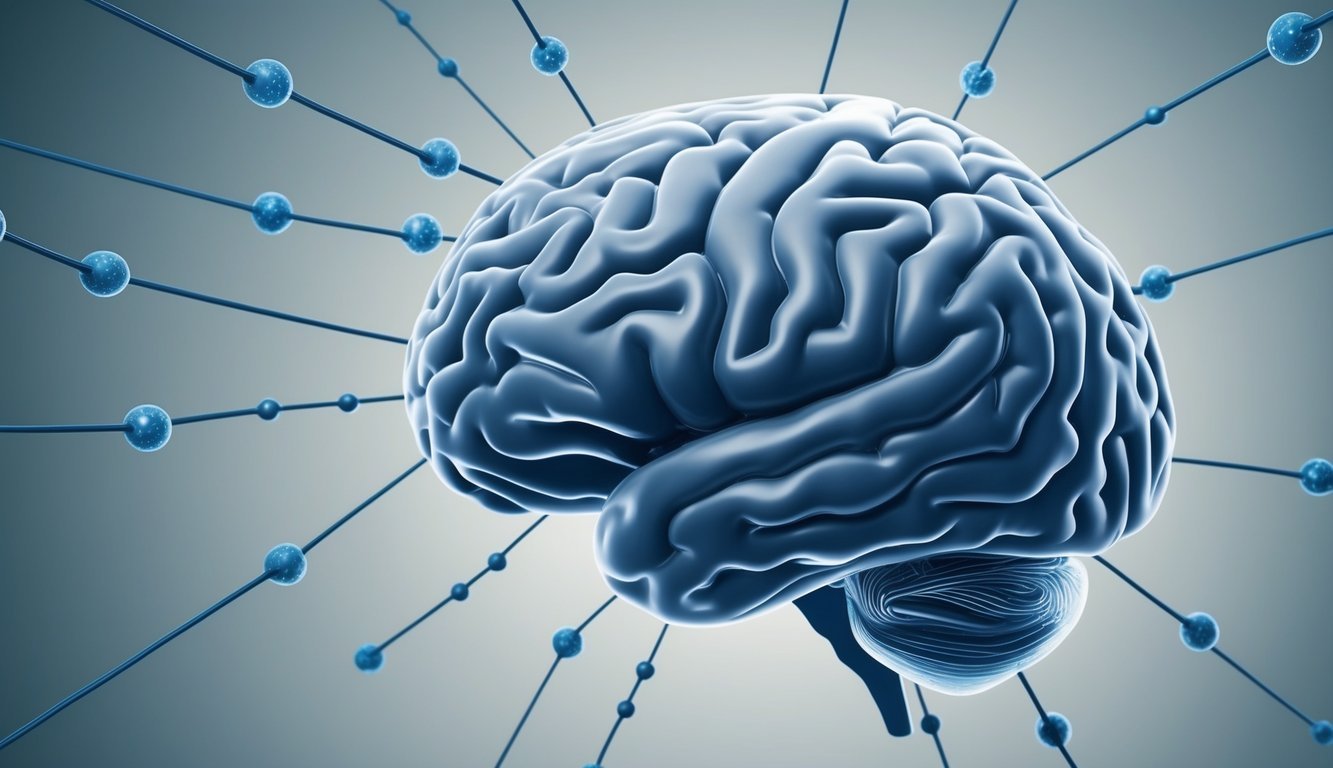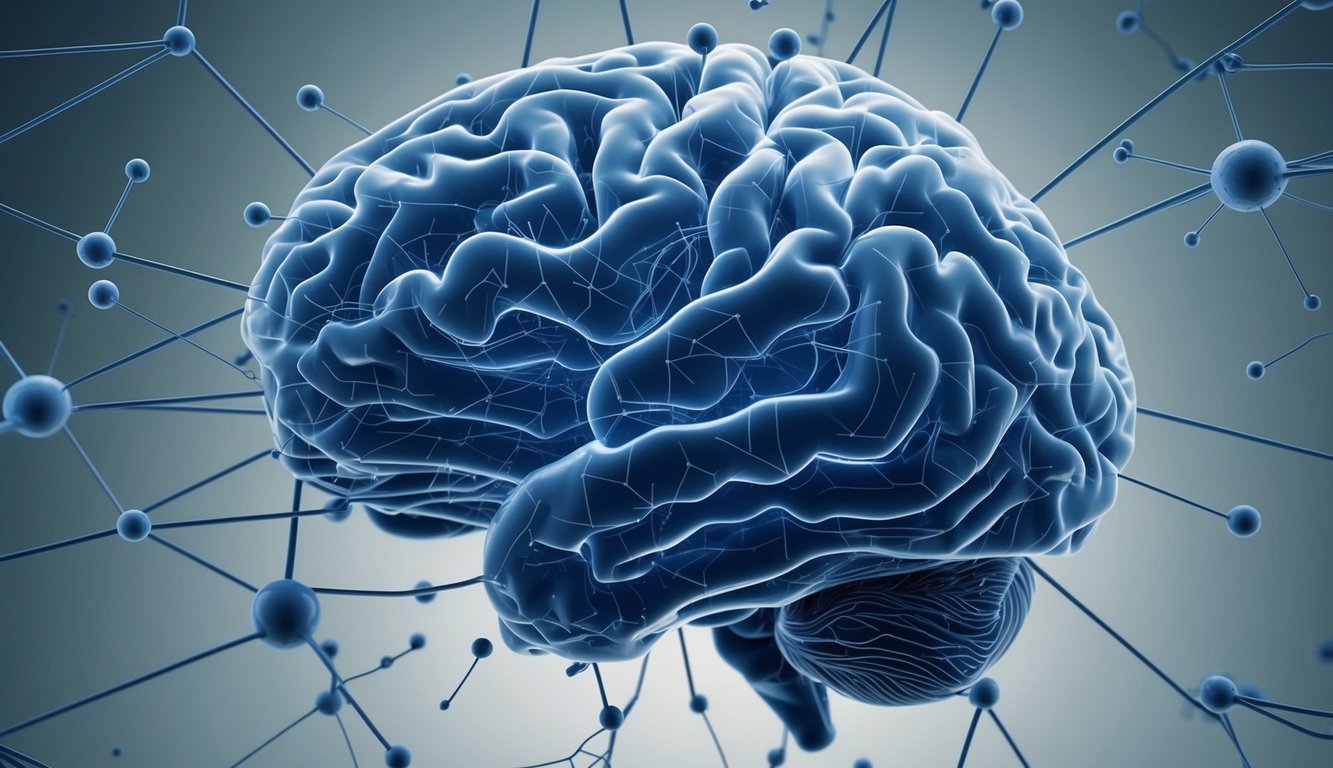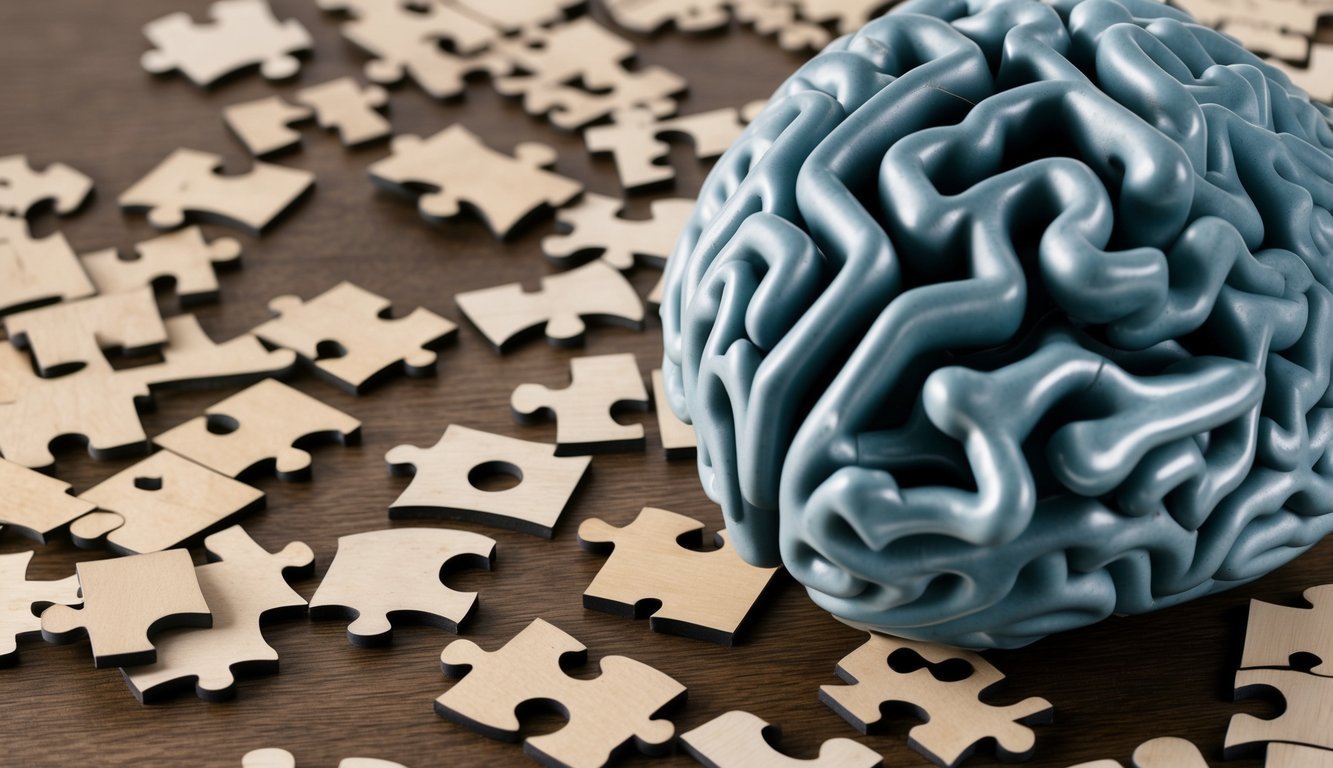PsychNewsDaily Publishers
100 Summit Drive
Burlington, MA, 01803
Telephone: (320) 349-2484
PsychNewsDaily Publishers
100 Summit Drive
Burlington, MA, 01803
Telephone: (320) 349-2484
Cognitive psychology examines mental processes such as memory, perception, and decision-making, utilizing theories like information processing and cognitive development to understand human behavior.

Cognitive psychology emerged as a unique discipline in the mid-20th century, concentrating on mental processes such as thinking, perception, memory, and learning. This innovative approach transformed the exploration of the human mind by introducing fresh theories and methodologies.
The origins of cognitive psychology can be traced back to ancient Greek philosophers who contemplated the essence of knowledge and thought. In the late 19th century, Wilhelm Wundt inaugurated the first psychology laboratory, laying the foundation for the scientific examination of the mind.
The behaviorist movement dominated the early 20th-century psychological landscape, prioritizing observable behaviors over internal mental experiences. However, this focus faced challenges as scholars recognized its inadequacies in accounting for the intricacies of human cognition.
During World War II, psychologists addressed practical challenges such as pilot selection and radar operation, which fueled interest in mental processes. This pivot paved the way for the advent of cognitive psychology during the 1950s and 1960s.
Information processing theory became foundational in cognitive psychology. This model equates the human mind with a computer, encompassing input, processing, and output stages. It investigates how individuals acquire, retain, and deploy information.
George Miller’s concept of the “magical number seven” underscored the constraints of short-term memory. This research has had a profound influence on subsequent studies regarding memory systems and cognitive capacity.
Jean Piaget’s theory of cognitive development outlined how children’s thinking advances through specific stages. His contributions continue to shape developmental psychology and educational methods.
The cognitive revolution signified a paradigm shift within psychology, reinstating the examination of internal mental mechanisms and challenging the preeminence of behaviorism.
Noam Chomsky’s critique of B.F. Skinner’s theory of verbal behavior illuminated the insufficiency of behaviorism in elucidating language acquisition. This discourse sparked heightened interest in cognitive perspectives on language and cognition.
Research methodologies evolved to delve into mental processes. Techniques such as reaction time studies and brain imaging opened new avenues for investigating cognitive functions.
The cognitive approach expanded its influence beyond psychology to fields such as artificial intelligence, linguistics, and neuroscience, profoundly shaping our comprehension of human behavior and thought.

Cognitive psychology scrutinizes the mental activities that underpin human behavior and thought. These processes form the bedrock of our perception, comprehension, and interactions with our surroundings.
Perception is the process of interpreting sensory input from our environment, commencing with sensory memory, which temporarily retains incoming stimuli.
Visual perception enables us to identify objects, faces, and patterns. Auditory perception aids in understanding speech and locating sounds. Other senses such as touch, smell, and taste also shape our overall perceptual experiences.
Sensory memory’s duration is extremely brief, usually lasting less than a second, acting as a filter that allows the brain to process and select relevant information prior to its transition into short-term memory.
Perceptual constancy ensures stable representations of objects despite alterations in sensory input, encompassing size, shape, and color constancy.
Attention is the cognitive process that involves selectively focusing on particular aspects of the environment while disregarding others. It is essential for effective information processing and cognitive functioning.
Types of attention include:
Consciousness encompasses our awareness of internal and external stimuli, ranging from full alertness to deep sleep.
The interplay between attention and consciousness is intricate. While attention can shape conscious awareness, certain attentional processes operate outside of our conscious understanding.
Memory involves the cognitive processes of encoding, storing, and retrieving information, typically categorized into short-term and long-term memory systems.
Short-term memory, often referred to as working memory, holds a limited volume of information for a brief duration, typically accommodating about 7±2 items for approximately 20-30 seconds without rehearsal.
Long-term memory retains information for prolonged periods, possibly indefinitely, and includes:
Memory consolidation is the process of transferring information from short-term to long-term memory, often occurring during sleep and involving the hippocampus and various other brain regions.
Language acquisition refers to the process by which humans learn to comprehend and produce language, usually commencing in infancy and continuing into childhood.
Key components of language acquisition include:
Language processing consists of numerous cognitive functions, including:
Neuroimaging advancements have identified specific brain regions linked to language processing, such as Broca’s area which is involved in speech production and Wernicke’s area which is engaged in comprehension.

The principles of cognitive psychology have practical implications in mental health treatment, educational environments, and problem-solving strategies, illustrating the broad impact of the field on human thought and behavior.
Cognitive psychology techniques hold a vital role in clinical settings. Practitioners utilize cognitive assessments to gauge patients’ mental processes and states, aiding in the identification of cognitive distortions, memory deficits, and attentional problems.
Cognitive restructuring serves as a central intervention method, guiding patients to recognize and adjust maladaptive thought patterns. This approach has proven particularly effective for anxiety disorders and depression.
Neuropsychological evaluations grounded in cognitive psychology assist in diagnosing conditions like dementia and traumatic brain injuries, assessing various cognitive domains, including memory, attention, and executive functioning.
Cognitive Behavioral Therapy (CBT) exemplifies the application of cognitive psychology. This evidence-based approach merges cognitive and behavioral techniques to address mental health concerns.
CBT emphasizes identifying and contesting negative thought patterns. Patients are guided to recognize cognitive distortions and substitute them with more realistic and positive thoughts.
Core techniques in CBT encompass:
CBT has demonstrated efficacy in treating a variety of conditions, such as:
Cognitive psychology considerably shapes educational methodologies and learning strategies. Educators leverage cognitive principles to refine teaching practices and optimize student performance.
Memory enhancement techniques drawn from cognitive research assist students in retaining information more effectively, which may include spaced repetition, elaborative rehearsal, and mnemonic devices.
Cognitive load theory informs instructional design by guiding educators to present information in a manner that maximizes working memory capacity and facilitates efficient learning.
Problem-based learning, rooted in cognitive psychology, promotes critical thinking and the application of knowledge, helping students cultivate practical skills and a deeper understanding of their subjects.
Metacognitive strategies, encompassing self-reflection and self-assessment, empower students to regulate their learning processes. These skills foster lifelong learning and academic achievement.

Cognitive psychology engages with several interconnected domains, enhancing our grasp of human cognition. These intersections span artificial intelligence, neuroscience, and social sciences, fostering a multifaceted exploration of cognitive phenomena.
Cognitive psychology and artificial intelligence maintain a mutually beneficial relationship. AI developers are inspired by human cognitive processes to create intelligent systems, with machine learning algorithms often mirroring neural networks that replicate how the brain processes information.
In parallel, cognitive science merges experimental psychology with AI, facilitating the development of more precise models of human cognition.
AI technologies such as natural language processing and computer vision are rooted in cognitive theories, offering novel tools to investigate perception, language, and problem-solving.
Cognitive neuroscience integrates cognitive psychology with neurobiology, investigating the connections between brain structures and cognitive functions.
Techniques like fMRI and EEG enable researchers to observe brain activity during cognitive tasks, allowing them to associate specific cognitive functions with particular brain regions.
Cognitive psychology and neuroscience collaborate to examine memory, attention, and decision-making, thereby enhancing our understanding of how the brain processes information.
Findings from neuroscience can affirm or challenge cognitive theories, leading to refined conceptual frameworks for mental processes.
Economics enriches cognitive psychology through decision-making theories and behavioral economics, offering insights into how individuals make choices amid uncertainty.
The relationship between linguistics and cognitive psychology is explored through psycholinguistics, which investigates language acquisition, processing, and production.
Anthropology provides cultural context for cognitive processes, and cross-cultural studies illustrate how thinking patterns and problem-solving approaches vary across different societies.
Together, these disciplines enrich our comprehension of human cognition, presenting diverse insights on how cultural, linguistic, and economic factors impact cognitive processes.

Cognitive psychology employs a range of methodologies to explore mental processes, from controlled experiments to advanced brain imaging techniques, with a growing focus on promoting open science practices.
Experimental designs underpin cognitive psychology research, where controlled studies are created to isolate particular cognitive processes and assess their impacts on behavior.
Empirical methods are vital, relying on observable data to validate theories. This approach frequently incorporates meticulously devised tasks that target specific cognitive functions.
Common metrics employed to quantify cognitive processes include reaction time assessments, accuracy rates, and eye-tracking data, which assist researchers in inferring underlying mental mechanisms.
Brain imaging technologies have transformed cognitive psychology by offering insights into neural activity during cognitive tasks. Magnetic Resonance Imaging (MRI) yields comprehensive structural images of the brain.
Functional MRI (fMRI) tracks blood flow variations linked to neural activity, enabling researchers to delineate brain regions associated with distinct cognitive functions.
Positron Emission Tomography (PET) employs radioactive tracers to visualize metabolic brain processes, revealing activation patterns during cognitive tasks.
Single-Photon Emission Computed Tomography (SPECT) contributes information on blood flow and metabolic activities, complementing other imaging approaches in cognitive research.
The open science movement has gained momentum within cognitive psychology, emphasizing the need for transparency and reproducibility in research endeavors.
Researchers now frequently pre-register studies, outlining hypotheses and methodologies prior to data gathering, which diminishes bias and enhances the reliability of results.
Open data sharing practices are becoming more prevalent, facilitating verification of findings and enabling secondary analyses by other researchers, fostering collaboration and advancing scientific progress.
Replication studies are increasingly valued, helping confirm important findings while identifying potential shortcomings in previous research. This emphasis on reproducibility fortifies the field’s scientific foundations.

Cognitive psychology faces numerous significant challenges that affect our understanding of mental processes, ranging from inherent cognitive biases to age-related changes and the intricate relationship between cognition and emotion.
Cognitive biases and heuristics considerably shape human judgment and decision-making, serving as mental shortcuts that may lead to systematic cognitive errors.
For instance, confirmation bias compels individuals to favor information that aligns with their pre-existing beliefs while dismissing conflicting data. This can obstruct objective analysis and learning.
The availability heuristic causes individuals to overestimate the probability of events based on how readily they can recall similar instances, potentially skewing risk assessment and decision-making across various contexts.
Researchers in cognitive psychology grapple with the accurate identification and measurement of these biases. Formulating strategies to mitigate their effects remains an ongoing hurdle in both research and applied settings.
As individuals age, numerous cognitive functions may deteriorate, posing challenges for both the aging population and researchers investigating cognitive processes.
Memory challenges are prevalent, with older adults often experiencing difficulties with forming new memories and recalling recent experiences, adversely affecting daily functioning and overall quality of life.
Aging is typically associated with a slowing processing speed, impacting reaction times and the capability to manage complex cognitive tasks proficiently, which can affect performance across diverse cognitive sectors.
Executive functions like planning and multitasking could also decline, hindering an individual’s capacity to adapt to new environments and effectively solve problems.
Researchers encounter the challenge of discerning normative age-related changes from pathological conditions such as dementia. Crafting interventions to sustain cognitive health among older adults is a critical area of ongoing investigation.
Emotions profoundly influence cognitive processes, affecting attention, memory, and decision-making. Understanding the dynamics between these elements presents both challenges and possibilities for cognitive psychologists.
Emotional states can enhance or hinder memory encoding and retrieval; people often remember emotionally charged events with more clarity, yet intense emotions can result in memory distortions.
Attention is heavily influenced by emotional cues, with negative emotions particularly narrowing focus and subsequently affecting cognitive performance across various tasks.
Decision-making processes are frequently swayed by emotions, sometimes leading choices that diverge from rational reasoning, especially in high-pressure contexts.
Researchers must navigate the complexities of accurately measuring and controlling for emotional variables in cognitive studies. The development of models integrating emotional and cognitive processes is an important objective to further our understanding of human cognition.
“`